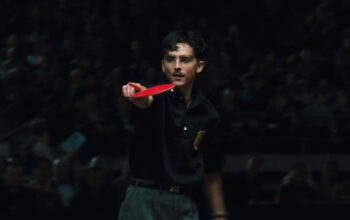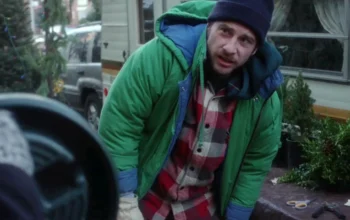Berlin Film Festival 2019: Jury press conference with Juliette Binoche, Sebastián Lelio, Trudie Styler, Sandra Hüller, Justin Chang, and Rajendra Roy
Now in its 69th year, much of the Berlin Film Festival takes place in and around Potsdamer Platz in central Berlin. Until the Berlin Wall came down (the 30th anniversary of which takes place later this year), Potsdamer Platz was a grim no man’s land where the wall intersected, home to guard towers and landmines as opposed to one of the largest and most prestigious film festivals in the world. The 2019 Berlinale jury faced the press in the ballroom of the Grand Hyatt at Potsdamer Platz, where the assembled media attempted to manoeuver them into political commentary, with mixed results.
This year’s jury is headed by Oscar-winner Juliette Binoche, who regally and effortlessly jumps between varying genres of French cinema, with occasional supporting roles that lend gravitas to Hollywood escapism (Godzilla, Ghost in the Shell). She oversees a jury comprised of fellow Oscar-winner Sebastián Lelio, director of Una mujer fantástica (A Fantastic Woman), Justin Chang, film critic for The Los Angeles Times, German actress Sandra Hüller (Toni Erdmann), Rajendra Roy, Chief Curator of Film at the Museum of Modern Art in New York, and Trudie Styler, who is often simply referred to in public as Sting’s wife, but who is an accomplished producer and director in her own right. Rather unsurprisingly in the age of the #MeToo movement, gender equality and representation featured in the discussion.
Juliette Binoche mentioned that she was very happy about the fact that there are seven films from female directors competing at Berlinale this year (which, as Trudie Styler later pointed out, works out to be 40% of the competition titles). Binoche said she mentioned this to Dieter Kosslick, the head of Berlinale, who told her that “these films weren’t selected because they were made by women, but were selected because they were great films”. She said she felt that the representation of female filmmakers at this year’s festival was a way of opening hearts and minds.
Nobody was surprised when Binoche was asked about working with disgraced producer Harvey Weinstein. She said that the question “opened a book that she had opened a while ago and perhaps didn’t want to open again”. Choosing her words carefully, she said that while Weinstein was a great producer and that she personally had never experienced anything untoward with him, justice needs to take its course. She concluded by wishing “peace to his mind and heart”.
The impact of Netflix on the production and distribution of film was addressed. Cannes Film Festival has had its rather public skirmishes with the streaming giant, and Venice made a point of welcoming Netflix submissions. Berlinale has taken a more neutral position, with one feature in this year’s selection (Elisa & Marcela from Spanish director Isabel Coixet) being released by Netflix. It seems that certain distinctions are important, since the jury pointed out that the movie will still be released in cinemas across Spain, and it will only premiere on Netflix in other territories.
Sebastián Lelio summed it up by talking about the so-called death of cinema (which admittedly has been pronounced many times). He said that for him, “film is not 35mm, or digital, and is about the story being told, which is a magical collective experience.”
Oliver Johnston
Photo: Abdulhamid Hosbas/Anadolu Agency/Getty Images
Read more reviews from our Berlin Film Festival 2019 coverage here.
For further information about the event visit the Berlin Film Festival website here.


























Facebook
Twitter
Instagram
YouTube
RSS